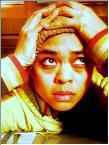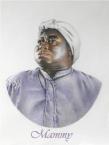I am not alone. Life in the 30s for me and most women I know is an ebb and flow of wanting to live and wanting to die. Our conversations are sprinkled with the hope a new project brings and the lament of what a new project means to our lives. We want to live, to carry out the life we have established, but sometimes death seems an easier escape, if not death from this world but death to this life to live another life.
After establishing our personal and career identities in our 20s we are now left trying to gather 30-something identities using 20-something zeal. We plunge into life with a reckless abandon that has wrecked havoc on post-partum bodies and “thinking for everyone” minds. No longer are we free or able to stay on the go. We have children and husbands and ministries and more grown-up ideas and ideals that don’t fit a 20-something paradigm. And God is expecting more from us or has always expected more; we just don’t look to him as much. We have no reason to. We have our career and cars, friends and fun and clothes. We are the closest things we know to stars. And now, we still want to have it all, to be stars, but we realize the great cost that has to be paid to have it all. The price for many of us is therapy or Zoloft, Zanax or Prozac. We spend time on couches and chairs and in a dazed reality to help us deal with the reality that had us crying out for help.
You see, I fell apart because I was striving to be what all strong black women are told to be: everything to everybody, including yourself. You have to be the best you that you can be. So on top of meeting everyone else’s needs we must be highly educated, seek high-paying jobs, be extremely well-groomed, make the right social networks, exercise and eat right. This “truth” is impossible though for years black women have walked this path, only to be afflicted with sugar (diabetes), high blood pressure, cancer, strokes and heart problems (congestive heart failure, heart attacks and angina). I wanted to die because I saw death as my greatest relief to a life I didn’t know how to change. I no longer wanted to do it all to have it all, but that’s all I knew to do. I knew doing it all was killing me, but, like my foremothers, I wanted to be valiant to the end. I wanted people to say something like, “She has always handled things so well. She’ll be okay.” Or “I know she’ll bounce back. She always lands on her feet.” I wanted to be valiant until the end, and if some lifestyle-related illness unexpectedly killed me, I wanted to be known as the greatest martyr. This is all I knew, and this is all so many talented, educated, intelligent, black Christian women know. It’s the life of a strong black woman (SBW).
Copyright 2006-2010 by Rhonda J. Smith


